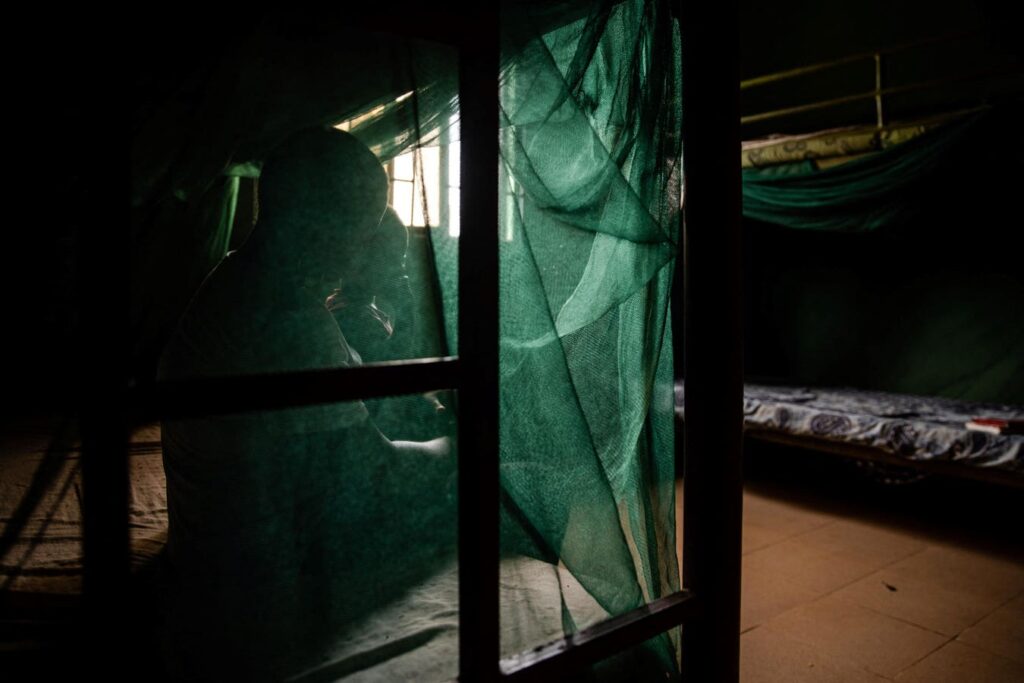[Stock photograph] A woman and her child rest on June 26, 2019, in Benin City, at one of the … More
AFP via Getty ImagesConflict-related sexual violence (CRSV) is a crime which affects all aspects of victims/survivors’ lives, with consequences which are far reaching and long-lasting. CRSV may cause physical and psychological trauma, and stigma, among others, all which affect victims/survivors and their families for generations. Many survivors remain silent due to fear of reprisals, lack of support, and the stigma placed on them instead of the perpetrators. CRSV is a crime which destroys the social fabric of entire communities for generations to come. The consequences can be magnified where CRSV results in pregnancies, often leading to further societal rejection of children born in these circumstances.
Despite various international initiatives and efforts, the crime continues unabated, and is perpetrated across all situations of conflict and atrocity crimes. While some situations receive some attention, with media coverage, documentation efforts, investigations and prosecutions, others continue in the darkness. For example, in a recent statement in June 2025, the UN Special Representative of the Secretary-General on Sexual Violence in Conflict Ms. Pramila Patten expressed grave concerns over the escalating levels of sexual violence being inflicted upon women and girls amid the worsening gang violence in Haiti. As she emphasized, the situation has reached a breaking point: “These heinous crimes are overwhelmingly concentrated in areas under gang control, where State presence is virtually nonexistent. In many instances, sexual violence is being used deliberately and systematically to assert dominance and punish communities.” The situation in Haiti is among several dire cases that fall through the crack of international attention and responses.
Ten years ago, on June 19, 2015, the United Nations General Assembly proclaimed June 19 the International Day for the Elimination of Sexual Violence in Conflict, to raise awareness of the need to put an end to CRSV, and to honor the victims/survivors of sexual violence around the world. In 2025, the International Day for the Elimination of Sexual Violence in Conflict is focused on addressing the intergenerational effects of CRSV, including by empowering victims/survivors through healing and community support. As the UN stressed, “To break this cycle and promote healing, access to mental health and psychosocial support is crucial. Survivors require trauma-informed care to help navigate their experiences and build resilience. Effective intervention strategies include community-based support, child-friendly resources for young survivors, educational initiatives, and legislative changes aimed at preventing conflict-related sexual violence. By addressing intergenerational trauma, we can foster an environment where survivors and their children are empowered to reclaim their lives, transforming their experiences of horror into hope and healing.”
For the 2025 commemoration of the UN Day, UN Secretary-General António Guterres emphasized that “The focus of this year is the deep and lasting intergenerational wounds of conflict-related sexual violence. To break the cycle, we must confront the horrors of the past, support the survivors of today, and protect future generations from the same fate. That means ensuring safe access to vital, survivor-centered and trauma-informed services; delivering justice and holding perpetrators to account; and listening to — and amplifying — the vital voices of survivors.”
António Guterres further added that “Too often, perpetrators walk free, cloaked in impunity, while survivors often bear the impossible burden of stigma and trauma. The pain does not end with them. It stretches across lifetimes, ravaging generations of families, and forces the inherited legacy of trauma and suffering on the descendants of survivors.”
Indeed, CRSV, including rape, sexual slavery, forced prostitution, forced pregnancy, forced abortion, enforced sterilization, forced marriage and any other form of sexual violence of comparable gravity perpetrated against women, men, girls or boys, is a war crime, a crime against humanity and a constituent act of genocide under international law, and must be treated as such. Words of condemnation are important but never enough. Actions are key – including investigations and prosecutions of all those responsible for the crimes, but also steps to support victims/survivors with their short and long term needs.
Read the full article here


